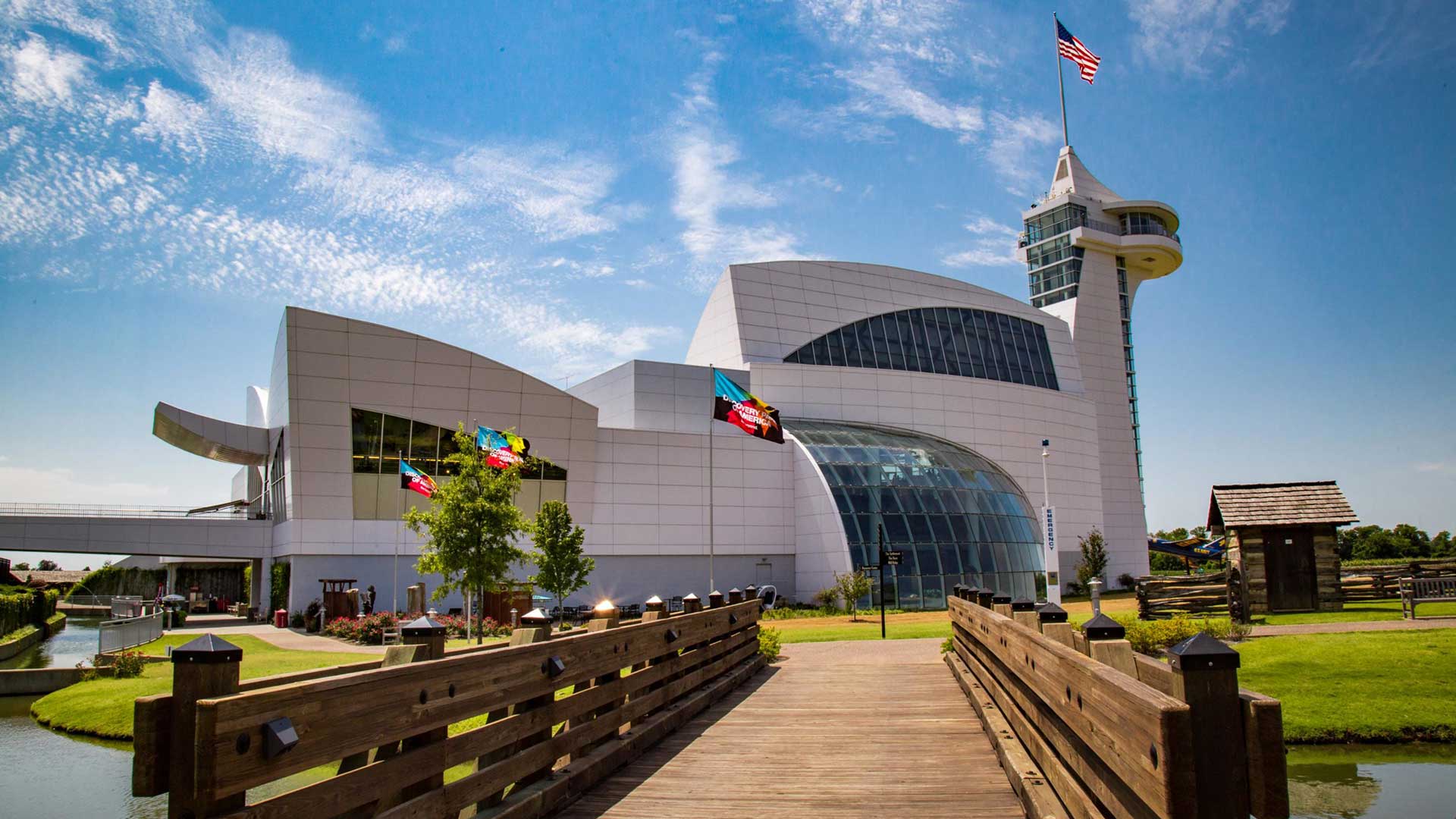The Great River Road’s network of Interpretive Centers tells the story of the Mississippi River, its people, and its history at museums, historical sites, parks, and more through 10 states. Here are some of the Interpretive Centers you shouldn’t miss on the southern half of the road in Arkansas, Kentucky, Tennessee, Mississippi, and Louisiana.
See more Interpretive Centers along the Great River Road here.
Fun for everyone
Discovery Park of America is a one-of-a-kind museum in northwestern Tennessee that features exhibits about Native American history, space exploration, dinosaurs, natural history, and loads more, as well as a 50-acre heritage park featuring gardens, a grist mill, and a manmade river.
Learn about the birth of blues music at the Delta Blues Museum in Clarksdale in the Mississippi Delta, about a 90-minute drive from Memphis. The museum features interesting exhibits and artifacts, including Muddy Waters’ sharecropper home, instruments played by greats like B.B. King and John Lee Hooker, and the sign from the juke joint where Robert Johnson played his final show.
Music fans can also see where a young Johnny Cash grew up at the Historic Dyess Colony/Johnny Cash Boyhood Home in northeastern Arkansas. This Arkansas State University Heritage Site educates visitors about the Great Depression and the Dyess Colony (a farm resettlement colony established by the federal government) and how these factors shaped the early life of the famed musician and many others.
Parks and natural areas
Anglers, boaters, and birdwatchers will find a lot to explore at Lake Chicot State Park in southeastern Arkansas. Lake Chicot is 20 miles long and is the largest oxbow lake in North America, offering outstanding opportunities for fishing and boating, and programs at the park include tours of the lake and the Mississippi River levee.
Reelfoot Lake State Park in northwestern Tennessee has an interesting geologic history—the largest natural lake in Tennessee, Reelfoot Lake was formed during a violent earthquake in 1811 that caused the Mississippi River to flow backward and sank the area’s cypress trees under a massive rush of water. Today, Reelfoot Lake is a popular fishing destination (it’s one of the world’s best natural fish hatcheries) and a good spot for birdwatching, camping, and other activities.
The Jean Lafitte National Historic Park & Preserve invites visitors to explore New Orleans and beyond, offering free walking tours of the city’s famed French Quarter and lots of other sites to discover, including the 23,000-acre Barataria Preserve and three Acadian attractions that focus on Cajun life and traditions.
A trip through history
Kentucky’s stretch of the Great River Road is the shortest in the 10-state region, but visitors can still find some interesting historical attractions. Columbus-Belmont State Park sits on the site of a former Confederate fortification where the Battle of Belmont began in 1861, marking the opening of the Union’s western campaign (it was also Ulysses S. Grant’s first active engagement in the Civil War). Wickliffe Mounds State Historic Site is home to Native American mounds built by the Mississippian culture from the 12th to 14th century—a museum on site contains artifacts and shows visitors how the inhabitants used the river’s resources in their daily lives.
Another Civil War site worth visiting is Vicksburg National Military Park in east-central Mississippi. Vicksburg was the site of one of the most important campaigns of the Civil War, and visitors will learn about the men who fought this pitched battle for control of the Mississippi River, a key conflict that shaped the outcome of the war.
Did you know that Louisiana is home to a UNESCO World Heritage Site? Poverty Point World Heritage Site in the northeastern corner of the state preserves the remnants of a complex array of earthworks that predate the Mayan periods. The site dates to as early as 1700 BC and encompasses more than 400 acres.








